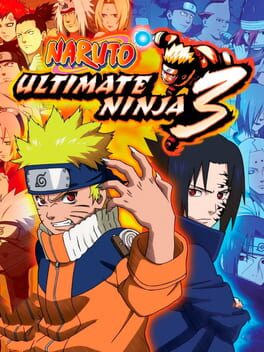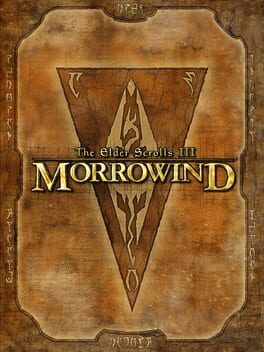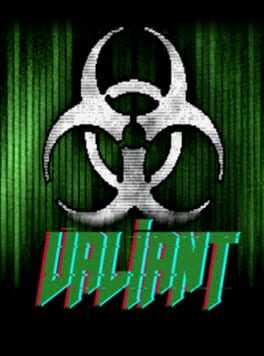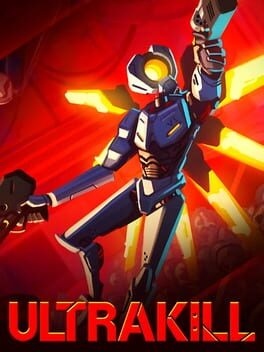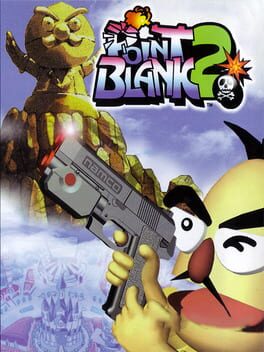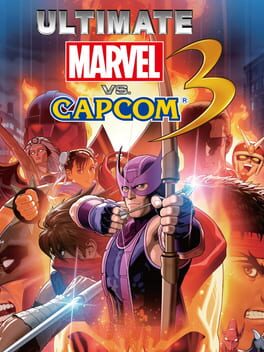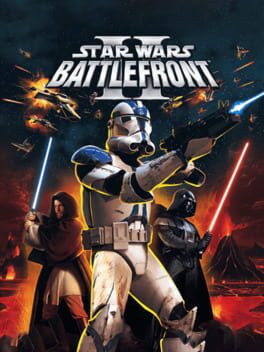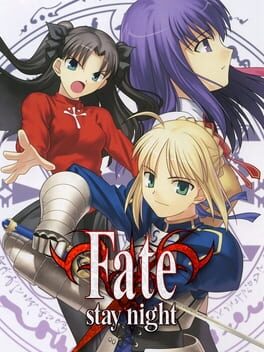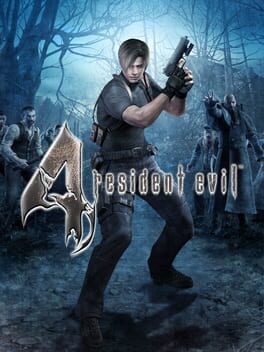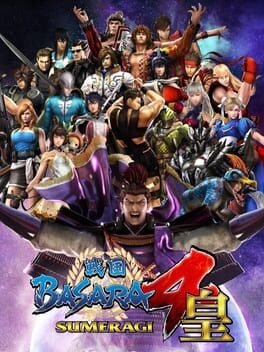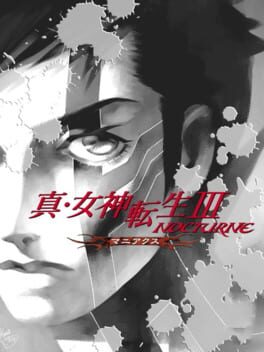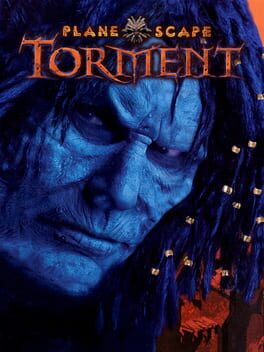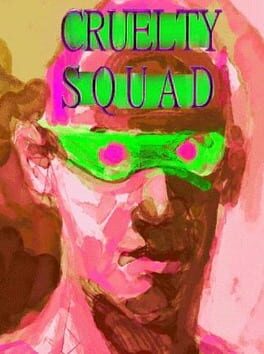I DARE you to watch a Ougi compilation clip and not get hyped, the cinematic supers in this game are the best the licensed game genre will ever see, bar none. As a game some changes to combat make the game more aggressive, but there's typical anime-game bullshit that holds the game back, such as the log substitution chase or whatever. Still selectable jutsus give some characters optional styles of play which is a nice bit of player expression in comparison to the previous entries. Nice selection of roster as well, including pretty much a who's who of PTS naruto. Very strong licensed game, one of my favourites.
Not sure why I like this one the most of the series. Not a PvP'er so the major strength of this game (according to the fanbase) is lost on me, I think the DLC is overhyped at best and actively annoying at worst, and nothing in this game particularly stands out as being exceptional. In fact, there's about 5 areas in the game I would say are some of the dumbest stuff I've ever played. I guess I enjoy this so much since it is the most 'gamey' of the Souls series; it's not overtly ambitious like DS1 and doesn't feel like an awkward fan apology like DS3. DS2 is primarily concerned with customization and expression, and the variety of ways you can mess around and break the game with dumb and creative builds makes it weirdly inline with something like the SaGa series or FFT than anything similar to how the Souls series typically approaches RPG mechanics. When you look at the game as essentially a giant sandbox to experiment in, and are willing to use a walkthrough to find the materials to make good experiments, the stupid parts become a lot more bearable.
Probably the only game I played where breaking the mechanics is actually encoded in the story. Pretty satisfying that basejumping the entire continent to stunt on the xenophobic slave-owners is an entirely valid experience. The hard cap on this is that Morrowind easily has some of the worst UX I've ever seen for a game in this era, the map is trash, the inventory system is a mess, and there's so. much. menu. clicking. All this combines with a doo-doo melee system and lackluster quest design to make the early game a slog to play, which is why I broke the game with some console commands and legal exploits. This is easily the best magic system in TES though, spellmaking + alchemy allows for a lot of creative and powerful ways to assert your magical dominance--basejumping, super fast levitation, instanthearthing, autoheals, etc. are totally possible if you know your way around.
Still, the real sell is the main quest, which is actually interesting and a decent look at religious prosecution, the ambiguity of prophecy, traditionalism, etc. with some nice epistemological moments thrown in. The sub theme of what delineates the coincidental from the supernatural is a totally unique thought for video games, as philosophy of religion is totally unexplored in pop culture despite how dominant religious modes of thinking are in our secular age. I mean, you may call yourself a secularist, but if "why do good things happen to bad people?" is a compelling question for you, you're still pretty much a theist. You do have to kind of draw all the philosophy of religion out though, as the actual dialogue and plot-by-plot moments only mention the actual meaning of what's going on in passing; it's thematics are best discovered on long, laborious walks both in-game and out-of-game than through digging journal entries or dialogue.
Ultimately, Morrowind is a game that requires a bit of digging and finessing to make enjoyable, but its such a unique experience with unique things to say its hard to be too mad at it. Patience and faith is the core to all religious experiences after all.
Still, the real sell is the main quest, which is actually interesting and a decent look at religious prosecution, the ambiguity of prophecy, traditionalism, etc. with some nice epistemological moments thrown in. The sub theme of what delineates the coincidental from the supernatural is a totally unique thought for video games, as philosophy of religion is totally unexplored in pop culture despite how dominant religious modes of thinking are in our secular age. I mean, you may call yourself a secularist, but if "why do good things happen to bad people?" is a compelling question for you, you're still pretty much a theist. You do have to kind of draw all the philosophy of religion out though, as the actual dialogue and plot-by-plot moments only mention the actual meaning of what's going on in passing; it's thematics are best discovered on long, laborious walks both in-game and out-of-game than through digging journal entries or dialogue.
Ultimately, Morrowind is a game that requires a bit of digging and finessing to make enjoyable, but its such a unique experience with unique things to say its hard to be too mad at it. Patience and faith is the core to all religious experiences after all.
2015
Love SOME of the aesthetics here, like episodes 2, 4, and 5. There's also some really impressive exploring levels here; the map inside the castle is one of the best DOOM maps I've ever played, wrapping around itself and providing a variety of different viable paths. Same with E1M6, which has the similar massiveness and variety of paths. The less expansive levels still have some punch to them, usually in way of some interesting encounters or some type of gimmick. The custom monsters are mostly successes, only the mutated mancubus feels more like an HP sink than a legitimate threat in most cases. The main thing holding this back is some unnecessary difficulty via traps and instant-death traps, as well as some less than stellar levels as it heads towards the end. Still a pretty cool map pack.
2020
This is really impressive. Adding the DMC Style system to a slide-n-shoot/airdashing FPS has been done before (see: Bulletstorm, Vanquish, etc.), where this one goes crazy is that health management is done entirely through CQC kills, meaning that the only way to survive in this game is to manage the risk of pulling off stylish shit with the insurance of your evasion skills. The weapon balance is also carefully considered, the long standard of the Hitscan Machine Gun and Shotty being the go to killers in FPS is not true here: Shotty is reliable but not as efficient or stylish as other options, and ULTRAKILL's Hitscan Machinegun is not only projectile-based now but also has severe dropoff a few feet past melee range. The power nerfs of the goto duo is made up through other weapons and alt-fires: the pistol is a surprisingly powerful weapon with two really strong, yet high skill alt fires, and the Shotty has two risky yet rewarding Crowd Control alt fires. Machinegun has another interesting alt-fire as well, but I'm digressing. The impressive point of ULTRAKILL is really how well executed it is; it could of have been Bulletstorm + Vanquish and had all the hardcore FPS gamers of the 7th gen goin crazy, but it goes a step beyond in offering more combat depth and a higher skill ceiling than either game. With four different alt-fires planned and some additional levels, as well as the removal of fall deaths, this could really become a pinnacle of the genre.
1996
this is some of the most insane gun-based activity I have ever seen, and I'm an american. very difficult but in a way that makes me laugh along when I lose rather than get upset because of the unique challenge of the minigames. one minigame has you shoot an alarm clock that matches the given time, which sounds easy enough, until all of your options are in analog, all of the other options mismatch the hours and minutes hands, and you have 3 seconds to decide. Best played with a bud.
F O O T D I V E
HARD KICK
M O L E C U L A R S H I E L D
GRAVITY SQUEEZE. HAHAHAHAHAH.
YOU.
ARE.
DEFEATED.
EAT THIS! YOU LIKE THAT? GRAVOMETRIC PULSE...ENERGY JAVELIN ENERGY JAVELIN ENERGY JAVELIN ENERGY JAVELIN
HUUUUMAN...ROCKET PUNCH
SUCK ON THIS
EAT LEAD
LOADING GRENADE.....OPEN FIRE
YOU WILL NOT SURVIVE
BOLTS. of. BALLSACK
N O W I M M O T I V A T E D
BY ODIN'S BEARD....MIGHTY TORNADO
JOHNNY BLAZE RIDES AGAIN
THAT'S ALL I NEED
HARD KICK
M O L E C U L A R S H I E L D
GRAVITY SQUEEZE. HAHAHAHAHAH.
YOU.
ARE.
DEFEATED.
EAT THIS! YOU LIKE THAT? GRAVOMETRIC PULSE...ENERGY JAVELIN ENERGY JAVELIN ENERGY JAVELIN ENERGY JAVELIN
HUUUUMAN...ROCKET PUNCH
SUCK ON THIS
EAT LEAD
LOADING GRENADE.....OPEN FIRE
YOU WILL NOT SURVIVE
BOLTS. of. BALLSACK
N O W I M M O T I V A T E D
BY ODIN'S BEARD....MIGHTY TORNADO
JOHNNY BLAZE RIDES AGAIN
THAT'S ALL I NEED
2004
Probably more I will say about this, for now I will say that as a chuunige the theme of self-acceptance and struggle for a fulfilling everyday life is wonderful, and that the big dumb cheesy moments are cheesy and dumb for the right reasons. You should stop beating your inner child up if you don't find the end of Heaven's Feel like the most moving shit ever.
2011
Such a strong musou game, only real flaw is the lack of an endless or duel mode. Combos are done through combining specific moves rather than strings, giving a far bigger variety of combo options than your typical musou game; additionally, this game is the first in the series with interchangeable special skills, which even further bolster the combo system to be the best in the series. If you don't believe this makes a difference in musou gameplay, you should youtube a combo video and see what I'm saying; the combat is very fast, flashy, complex, and fun, and is an interesting spin on the power fantasy gameplay of other musou games.
I also love, for the most part, the design work in this game; mainline Warriors is increasingly heading towards more fantastical and ridiculous character interpretations, but the Basara series has already outstrapped any of their efforts: Honda has a literal powersuit, Nobunaga has a demon stand, Masamune has 6(!) swords, Kanatesgu is a Tokusentai protag, Mistunari is a Vergil-clone, etc. The designs are so utterly ridiculous and anime, yet they also let the characters be more uniquely distinct from each other; Honda can feel like a slower Lu Bu in the SW series, but in Basara Honda is literally flying around the screen with Electromagnetic boosters, summoning laser shields around his lance as he charges through enemies. Even further, every character has a unique mechanic attached to them that strengthens their moves, with that mechanic either requiring just framing, mashing, timing, specific stringing, or stance changing to be utilized. This feels like Capcom's hidden love letter to all of the combat systems they've explored in their character action games and fighting games, and to all the lab-monsters out there who've spent thousands of hours exploring their systems. It's like the twitter-combo of video games.
I also love, for the most part, the design work in this game; mainline Warriors is increasingly heading towards more fantastical and ridiculous character interpretations, but the Basara series has already outstrapped any of their efforts: Honda has a literal powersuit, Nobunaga has a demon stand, Masamune has 6(!) swords, Kanatesgu is a Tokusentai protag, Mistunari is a Vergil-clone, etc. The designs are so utterly ridiculous and anime, yet they also let the characters be more uniquely distinct from each other; Honda can feel like a slower Lu Bu in the SW series, but in Basara Honda is literally flying around the screen with Electromagnetic boosters, summoning laser shields around his lance as he charges through enemies. Even further, every character has a unique mechanic attached to them that strengthens their moves, with that mechanic either requiring just framing, mashing, timing, specific stringing, or stance changing to be utilized. This feels like Capcom's hidden love letter to all of the combat systems they've explored in their character action games and fighting games, and to all the lab-monsters out there who've spent thousands of hours exploring their systems. It's like the twitter-combo of video games.
Long-winded, but the TL;DR is that's it's pretty much the best version of Nocturne if you're willing to do your own jank version of Skill inheritance via Cheat Engine tables. It is however for the hardcore SMT'ers out there-- even on normal it is some orders harder than base Nocturne. To anyone familiar with the 'meta' behind SMT games though, it has amazing value as being an updated and more expressive version of Nocturne.
Scattered thoughts:
- Lots of kino cinematics I forgot about here. The heel-turns, Grimkhela summon, Most of Yuko's scenes, Trumpeter, Hell Biker, & Harlot's intros, Lucifer's summon, etc.
- One thing about Nocturne very few other SMTs have emulated as well is spell variety. Starting around post Hell-Biker going straight for -nga spells isn't necessarily the best idea, because the extra status chance/secondary effect on some other, less damaging spells can be a life-or-death thing. Especially true with Hardtype which adds in shit like Scald which has great utility even late-game.
- Hardtype's HP increases are kind of whack TBH. For some bosses like Mother Harlot, Dante Round 1, or the Riders it's definitely needed, but for other shit like Sahakaghi or Belezeebub it's more tedious than challenging. In most other cases it just tilts edge-case wins to the boss rather than the player, as the boss will just out-sustain you/beat you in the damage race.
- The Full-Moon miniboss encounters are a smash, they're decently hard, give good EXP as a reward, and aren't necessary to fight with the new smoke ball item. Definitely marked out for the 5th kapla full-moon miniboss, great touch.
- Didn't see too much nerfing which is incredibly for a fan-made mod, only Tornado really took a hit but there's a lot better demons and spells mid-game so it's nbd. The buffs on the other hand are great across the board, magic Demi-Fiend is very strong (esp. with the phys repel boss spam), and support demi-fiend has very usuable utility, even if prayer is more easily splashed on your demons.
- The boss scripts are greatly improved, there's some memes like Aciel still but Hardtype cements Nocturne with some of the best bosses across JRPGs. Baal Avatar, Mother Harlot, Trumpeter, Albion, and Metatron is an all-time collection of bosses.
- The System changes Hardtype does are also a smash. Most of it is no-brainer like removing the damage cap, giving Dante pierce, making skill inheritance weighted, etc. but there's some risky changes that pay off well. Making Luck a determinant in magic accuracy is pretty brazy but works surprisingly well; it gives a stronger argument for physical demons as DPS since they have to rely far less on good luck/Cadenza buffs to hit, and can even get cheeky press-turns with the higher crit rates on physical skills. It also makes investing in luck on the Demi-Fiend actually worth a shit. Demon-swapping taking half-turns is ingenious as well; swapping is no longer a momentum loss but in fact can be used to gain quite a bit of momentum if you plan your press-turns right, like getting off two buffs for the price of one. Since swapping got rid of some debuffs originally it also makes parachuting demons in and out a viable method of emergency status removal too, making it so getting status'd on your healer isn't the hax death-sentence like it was on the original. Add in the fact that all demons in your stock get 75% EXP and you'll find yourself using a greater roster of demons with more varied niches than in original. Thinking about my entire party of demons instead of a select 5-6 is a great logical progression of SMT's system.
- New skills are amazing too, I've talked about Scald, but really most of the new skills are perfectly designed for their intended purposes. The only complaint I have is that aliment secondary effects are kind of useless late-game, cuz unfortunately the hardtype creator still follows the philosophy of aliments being useless on bosses. Aliments are still super-strong on late-game dungeon crawling, especially with the HP curve meaning that late-game random battles can go for 8-12 turns instead of the 3-4 they did in the original. They become a lot more manageable however if you can get some statuses spread, and save a lot on MP and HP sustaining.
Scattered thoughts:
- Lots of kino cinematics I forgot about here. The heel-turns, Grimkhela summon, Most of Yuko's scenes, Trumpeter, Hell Biker, & Harlot's intros, Lucifer's summon, etc.
- One thing about Nocturne very few other SMTs have emulated as well is spell variety. Starting around post Hell-Biker going straight for -nga spells isn't necessarily the best idea, because the extra status chance/secondary effect on some other, less damaging spells can be a life-or-death thing. Especially true with Hardtype which adds in shit like Scald which has great utility even late-game.
- Hardtype's HP increases are kind of whack TBH. For some bosses like Mother Harlot, Dante Round 1, or the Riders it's definitely needed, but for other shit like Sahakaghi or Belezeebub it's more tedious than challenging. In most other cases it just tilts edge-case wins to the boss rather than the player, as the boss will just out-sustain you/beat you in the damage race.
- The Full-Moon miniboss encounters are a smash, they're decently hard, give good EXP as a reward, and aren't necessary to fight with the new smoke ball item. Definitely marked out for the 5th kapla full-moon miniboss, great touch.
- Didn't see too much nerfing which is incredibly for a fan-made mod, only Tornado really took a hit but there's a lot better demons and spells mid-game so it's nbd. The buffs on the other hand are great across the board, magic Demi-Fiend is very strong (esp. with the phys repel boss spam), and support demi-fiend has very usuable utility, even if prayer is more easily splashed on your demons.
- The boss scripts are greatly improved, there's some memes like Aciel still but Hardtype cements Nocturne with some of the best bosses across JRPGs. Baal Avatar, Mother Harlot, Trumpeter, Albion, and Metatron is an all-time collection of bosses.
- The System changes Hardtype does are also a smash. Most of it is no-brainer like removing the damage cap, giving Dante pierce, making skill inheritance weighted, etc. but there's some risky changes that pay off well. Making Luck a determinant in magic accuracy is pretty brazy but works surprisingly well; it gives a stronger argument for physical demons as DPS since they have to rely far less on good luck/Cadenza buffs to hit, and can even get cheeky press-turns with the higher crit rates on physical skills. It also makes investing in luck on the Demi-Fiend actually worth a shit. Demon-swapping taking half-turns is ingenious as well; swapping is no longer a momentum loss but in fact can be used to gain quite a bit of momentum if you plan your press-turns right, like getting off two buffs for the price of one. Since swapping got rid of some debuffs originally it also makes parachuting demons in and out a viable method of emergency status removal too, making it so getting status'd on your healer isn't the hax death-sentence like it was on the original. Add in the fact that all demons in your stock get 75% EXP and you'll find yourself using a greater roster of demons with more varied niches than in original. Thinking about my entire party of demons instead of a select 5-6 is a great logical progression of SMT's system.
- New skills are amazing too, I've talked about Scald, but really most of the new skills are perfectly designed for their intended purposes. The only complaint I have is that aliment secondary effects are kind of useless late-game, cuz unfortunately the hardtype creator still follows the philosophy of aliments being useless on bosses. Aliments are still super-strong on late-game dungeon crawling, especially with the HP curve meaning that late-game random battles can go for 8-12 turns instead of the 3-4 they did in the original. They become a lot more manageable however if you can get some statuses spread, and save a lot on MP and HP sustaining.
2019
Love the plot on the both micro and macro scale and the fact that this lets me roleplay as the misogynistic apolitical gamer I am is a true feat, not as big on the percent skill checks or seemingly random morale losses though. I also think there's some odd pacing barriers and tedium, with the shivers mural check being one of the worst. Zipping between the fishing village and the east side is also fairly annoying, and in general the game could benefit from a quick travel option for some key-locations. Also suffers a bit from the Planescape problem where people can just drone on and on about the most trivial bullshit or superfluous exposition.
All said however I do think this game approaches politics from a novel and interesting perspective, and is even more commendable for being closer to the political zeitgeist than whatever irrelevant WRPG/JRPG narrative is being deemed 'political' at the moment (see: Trails series). The relentless satire is funny, if a little repetitive, but is just a mask for the darker critique of convenient ideology at the heart of the story. The critique goes much farther than just a simple 'don't be dogmatic because reasons' platitude, and tries to demonstrate how being an ideologue disrupts your mental health, personality, relationships, etc.
In particular, the Fascist Thought seems pretty counterintitutive from a gameplay perspective, decreasing your morale every time you choose a fascist thought, but it's reflective of how mentally taxing being a fascist is, especially in a "thing" as blatantly left-wing and degenerate as Revanchol. The alcohol benefit of the Fascist thought seems like a cheap joke, but it's equally reflective of how the only way to maintain sanity as a Fascist is through intentional reality-disruption: i.e. constantly be drunk. The satire seemed too jokey at a first play-through but upon further inspection they're carefully considered, reflecting on what it's like to hold these beliefs both in the real-world and as a member of Revanchol. Politics is as important as it is banal, and is as universal as it is personal, and Disco Elysium really captures the contradictarory nature of all it.
However, if I had to give one substantial criticism, it's that the ending is too abru
All said however I do think this game approaches politics from a novel and interesting perspective, and is even more commendable for being closer to the political zeitgeist than whatever irrelevant WRPG/JRPG narrative is being deemed 'political' at the moment (see: Trails series). The relentless satire is funny, if a little repetitive, but is just a mask for the darker critique of convenient ideology at the heart of the story. The critique goes much farther than just a simple 'don't be dogmatic because reasons' platitude, and tries to demonstrate how being an ideologue disrupts your mental health, personality, relationships, etc.
In particular, the Fascist Thought seems pretty counterintitutive from a gameplay perspective, decreasing your morale every time you choose a fascist thought, but it's reflective of how mentally taxing being a fascist is, especially in a "thing" as blatantly left-wing and degenerate as Revanchol. The alcohol benefit of the Fascist thought seems like a cheap joke, but it's equally reflective of how the only way to maintain sanity as a Fascist is through intentional reality-disruption: i.e. constantly be drunk. The satire seemed too jokey at a first play-through but upon further inspection they're carefully considered, reflecting on what it's like to hold these beliefs both in the real-world and as a member of Revanchol. Politics is as important as it is banal, and is as universal as it is personal, and Disco Elysium really captures the contradictarory nature of all it.
However, if I had to give one substantial criticism, it's that the ending is too abru
1999
Doubt the industry will ever see something like this again. Combat sucks but outside a few tunnels it's not a big issue, thankfully the gameplay of questing, dialogue, companionship, and even puzzle-solving is genius. All of the companions' questline are thoroughly interesting and complex character studies that ultimately reflect on the TNO, and in general every named character has some meaningful story to tell that connects' back to the games' theme of regret. Even some of the seemingly innocuous items, like the language puzzles, get huge payoffs towards the conclusion of the game. Also has some of the coolest lore out of all the CRPGs; the Alphabets are personified through multidimensional beings (one of the first characters you meet is the letter 'O' inside a tavern), the locations are reflections of a variety of religious and mythical understandings of the afterlife, and without spoiling anything, the late-game stuff you encounter are very out-there as far as CRPGs go. Also goodness gracious, the prose here is super good at the really emotional moments, even if it makes some other mundane encounters unnecessarily windy and flowery. When you finally open the bronze sphere...next level stuff man.
2021
SWAT 5 but instead of copaganda its a Francis Bacon painting with a biopunk filter. This shit is the most arresting video game I've played since...I don't know when. I really hate to throw this in the 'needs a write-up' pile but there's so much to gush about here. The instant quotables ("I've been getting really into "hell". Both as a mindset and as something to strive for, in an organizational sense."), that OST, the gunplay that perfectly emulates the old skool tacticool FPS games, the level design, the secrets (did you know there's an additional hard mode that has rare enemies, new sections, & additional targets?!), the implants, the cryptic but emotionally evocative storytelling, both the LIFE and the Entrapment cutscenes, and just the whole indescribable aesthetic of the game. I've seen and experienced a lot of media that takes comfort in being dark, disdainful, and dreary, and indeed have the same emotional arc as this, but none do it with the quite the same balance of levity, futility, mania and malice like Cruelty Squad does.
Edit: So I saw that the dev retweeted this excellent video review of the game, which touches upon the actual themes of this game, which is something I neglected to mention in my gushing here.
I'm not a big Bataille fan, but this game inspired me to take a second look at his work, particularly the Accursed Share, and I'm finding his words increasingly compelling. There's something so...accurate about the way Bataille describes capitalistic societies as being excessive growth & energy without any tension release. The "growth" of Capital, and the resulting inequality, is like an endless edging session that has turned the temporary delay of gratification into an eternal permanence of longing, a longing of gratification that is never coming (haha penis). Gone are the days of the potlach, Bataille notes, in which inequality was solved in a cathartic day of gift-giving and redistribution ( and maybe some orgies ;) ); what we have instead in capitalistic societies is that the wealth is concentrated into luxuries, with redistribution being only done "as necessary" through welfare. The excess & inequality is entrenched in the capitalistic system.
What gives me hope, and what gave Bataille hope, and what ultimately Cruelty Squad is hoping for, is that the growth will overflow at some point. A potlach is just a sexier, voluntary revolution--one of the capital P Points of The Accursed Share is that the excess growth in any economy must be dealt with; the problem with capitalistic societies is that the recursive spending on luxury and the restrictive spending on welfare isn't really dealing with the issue of growth. The excess growth, if never dealt with, will spawn its own revolutionary growth that'll find itself amongst society's most spited and downtrodden. For Bataille (and for me), this was American Descendants of Slavery; for Cruelty Squad, it's the gig worker. It's not just some 'le random xd' moment that Cruelty Squad Man begins his journey waking up from a depression nap in his small weak-ass apartment; it's recognition that the revolution will find its strongest energy in the depressed, the marginalized, the unlucky, and the unloved. The final text of Cruelty Squad is a quote from Bataille emphasizing the inevitability of this revolutionary energy; this era will collapse or it will burst, whichever comes first.
And after that?
G O L D E N A G E
Edit: So I saw that the dev retweeted this excellent video review of the game, which touches upon the actual themes of this game, which is something I neglected to mention in my gushing here.
I'm not a big Bataille fan, but this game inspired me to take a second look at his work, particularly the Accursed Share, and I'm finding his words increasingly compelling. There's something so...accurate about the way Bataille describes capitalistic societies as being excessive growth & energy without any tension release. The "growth" of Capital, and the resulting inequality, is like an endless edging session that has turned the temporary delay of gratification into an eternal permanence of longing, a longing of gratification that is never coming (haha penis). Gone are the days of the potlach, Bataille notes, in which inequality was solved in a cathartic day of gift-giving and redistribution ( and maybe some orgies ;) ); what we have instead in capitalistic societies is that the wealth is concentrated into luxuries, with redistribution being only done "as necessary" through welfare. The excess & inequality is entrenched in the capitalistic system.
What gives me hope, and what gave Bataille hope, and what ultimately Cruelty Squad is hoping for, is that the growth will overflow at some point. A potlach is just a sexier, voluntary revolution--one of the capital P Points of The Accursed Share is that the excess growth in any economy must be dealt with; the problem with capitalistic societies is that the recursive spending on luxury and the restrictive spending on welfare isn't really dealing with the issue of growth. The excess growth, if never dealt with, will spawn its own revolutionary growth that'll find itself amongst society's most spited and downtrodden. For Bataille (and for me), this was American Descendants of Slavery; for Cruelty Squad, it's the gig worker. It's not just some 'le random xd' moment that Cruelty Squad Man begins his journey waking up from a depression nap in his small weak-ass apartment; it's recognition that the revolution will find its strongest energy in the depressed, the marginalized, the unlucky, and the unloved. The final text of Cruelty Squad is a quote from Bataille emphasizing the inevitability of this revolutionary energy; this era will collapse or it will burst, whichever comes first.
And after that?
G O L D E N A G E
